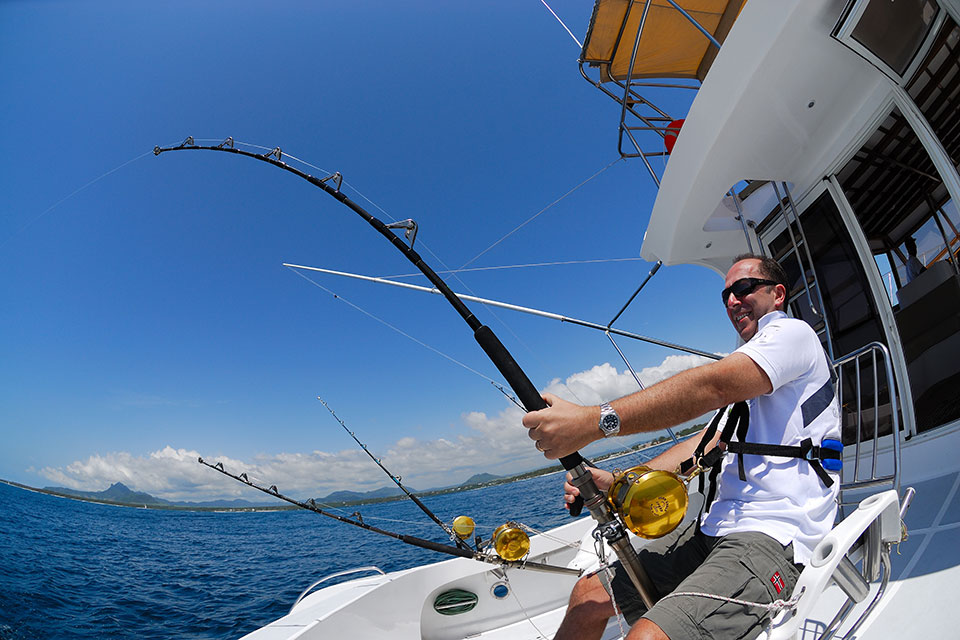Fishing For Food: What Are The Best Fish To Eat
Apr 12
FIshing is a very relaxing pastime, experiencing the wildlife and the gently lapping water, allowing you to be one with nature. However, the grumble of disappointment that accompanies not catching any fish is not. This piece is intended to give you a great deal of guidance on how to increase the size of your catch.
When fishing in rivers or lakes, the best place to fish is where the water switches from being shallower to getting really deep. The fish forage for food in these areas and they will be ready for you to scoop them up. Be careful if you are wading, though, as you could slip where the grade changes.
Be quiet when fishing. When you're loud the fish become startled and leave your area. If you must communicate with another person, try to do so in a voice that is no louder than a soft whisper; this will greatly increase your chances for success.
Take precaution when you fish on or near the bank because you don't want to light anything on fire. Lots of people smoke when they fish, and if you are one of them, be extra careful. Although the bank may be wet, the surrounding foliage may be dry.
Fishermen that are willing to catch their own bait and want something other than earthworms, would be wise to chase down a couple grasshoppers. Placed on an unweighted line and allowed to wriggle around on open water, these bugs are almost sure to attract some big bass when cast over deep, shaded fishing areas.
In Spring, during the early morning hours fish do not bite. At this time the water is too cold and the sun does not heat it up because the sun is low, the rays simply bounce off of the water. Fish will be biting soon, though. After thaw, wait about a week until the water turns over and the temperature gets up to 39.2 degrees.
A great fishing tip that novices and professionals alike can use is to always "feel" you line. Fish bites can often be as soft a small tick in the line and can easily go undetected by simply looking at your rod tip. Keeping a finger on your line will allow you to get a better feel of what is going on under water.
When fishing in fresh water, look for fallen debris. Cattails, logs in the water, and lily pads make great places for fish to hide, and therefore they usually equal a great fishing location. Just be sure that any water you pull your boat into isn't too shallow or you might end up getting stuck.
Remain as quiet as possible when you are trying to catch a fish. Fish do not like a lot of noise, and if you are being noisy, they are going to swim away from you. Keep any talking down to a minimum. If you have a radio on, keep the volume low.
No matter where you fish, always leave your surroundings as clean as they were when you arrived. Never toss trash, fish hooks, used fishing line or any other waste in the water or on the shoreline. This not only demonstrates respect for your fellow anglers, but it protects the wildlife who inhabit the area.
Learn as much as you can about the area. Develop a feeling for the parts of the stream or pond that the bass frequent most often. You should also learn which time they are most active. Timing is critical for bass fishing success.
Bring along a flashlight with your fishing tackle is an excellent idea. On long trips it can make packing-up at dusk much easier. Even if you are certain you will not be out after dark, a flashlight can still be handy for exploring dark recesses and finding lost pieces of gear.
Switch colors before you change lures. When you aren't catching anything, you may feel tempted to switch to a different lure. This is seldom the best solution. Rather than switching from a lure that has been effective in the past, try a different color of the same lure. This is more likely to fix the problem than a new lure entirely.
Cleaning a fish correctly can keep you from getting sick. In order to do this, you must have a cutting table and a small knife. Slice the fish's belly from head to tail. Cut the head and pull it while pulling the organs in the other direction. This will give you a cleaned out and ready to be boned fish.
Seeing your family's faces as you give them fresh fish to eat is worth every minute you spent reading these tips and fishing out on the water. All of the tips that have been provided here will assist with your skills as a fisherman.

